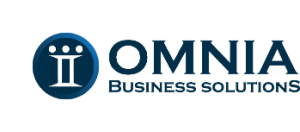Your self-managed superannuation fund (SMSF) must be run for the sole purpose of saving money for retirement. For this reason, there are strict rules for accessing the funds.
As a trustee of your fund, it’s important that you understand the rules that apply.
Preservation age
Access to your super funds typically begins when you reach your preservation age. This varies according to when you were born:
Born before 1 July 1960, your preservation age is 55
Born between 1 July 1960 and 30 June 1961, your preservation age is 56
Born between 1 July 1961 and 30 June 1962, your preservation age is 57
Born between 1 July 1962 and 30 June 1963, your preservation age is 58
Born between 1 July 1963 and 30 June 1964, your preservation age is 59
Born after 30 June 1964, your preservation age is 60
Conditions of release
To access the funds in your SMSF, you must meet specific conditions. You must be able to prove these to the Australian Tax Office (ATO). These include:
Reaching preservation age and retiring
Reaching preservation age and beginning a transition to retirement income stream while continuing to work
Turning 65 even if you haven’t retired
Early access of your SMSF
There are very specific occasions where you can legally access your SMSF early:
1. Compassionate grounds related to you or a dependent:
- To pay for medical treatment
- To modify your home for medical reasons
- To pay for palliative care
- To pay for the funeral or burial expenses
- To prevent foreclosure on your home
2. Terminal medical condition
You may be able to access your super if you are suffering from a terminal medical condition, as long as the following criteria are met:
Two registered medical practitioners have certified that you suffer from an illness or injury that is likely to result in your death within the next 24 months
At least one of the medical practitioners is a specialist practising in a field related to your illness
3. Severe financial hardship
You may be able to access your super early if you are under severe financial strain.
Eligibility to access your super for reasons of financial hardship depends on your age in relation to your preservation age.
4. Temporary incapacity
If you are temporarily unable to work or need to work fewer hours because of physical or mental health reasons, you may access your super early. Access under these grounds is usually used to access insurance benefits attached to your SMSF.
5. Permanent incapacity
Sometimes called a disability super benefit, you may be able to access your super early if you have a physical or mental health condition that prevents you from working ever again.
Illegal access
Using your super funds early or without meeting any of the above conditions will result in severe penalties. Any amount you access illegally will be included on your income tax return so you will pay additional income tax, tax shortfall penalties and interest.
Beware of schemes and scams run by people who say they can help you access your funds early. If you access your super funds illegally, you will be held responsible, even if you were led astray by a scam artist.
If you provided fraudulent documents to the ATO to access your funds early, you would also be liable for penalties for misleading statements.
If you are a trustee on an SMSF that illegally released funds to a member, you would be disqualified and barred from operating as a trustee in the future. Your name would also be published in both the Commonwealth Government Notices Gazette and the ATO’s trustee disqualification register. This means your disqualification will be on public record.
Get professional advice
If you are unsure about the rules to access your SMSF, it is best you speak to an accountant specialising in super. They can help you navigate the regulations to make sure you are compliant and to help you reach your financial goals.


